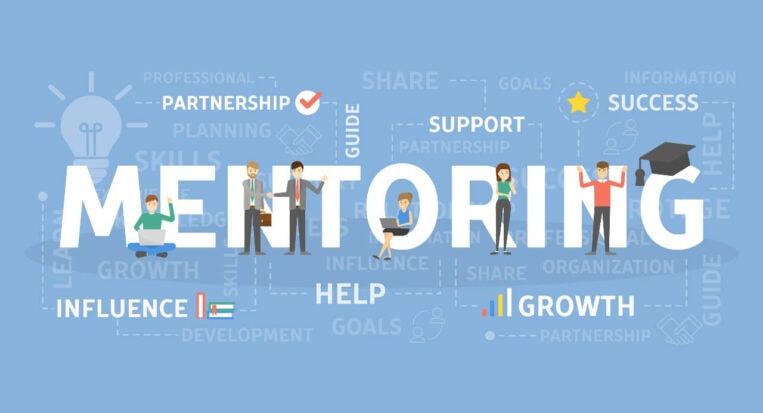Mentorships come in all shapes and sizes, from mentorships in the career and education space to mentorships in sports and the outdoors community; mentorships can be informal or formal. Mentorship in addiction recovery provides a structured accountability system between two individuals who can support each other and provide guidance to help teach and meet each other’s needs. Forming mentorships is an integral part of creating a community in recovery. Mentorship and community help decrease relapse rates and help individuals build essential life skills such as self-esteem, communication, and relationship skills that may otherwise be lacking. A mentor program is a unique opportunity provided to clients in some treatment centers; however, an individual does not need a formal mentorship to have support and guidance. Formal recovery mentors usually have been through addiction treatment and have undergone extensive peer support training to help them adopt the appropriate skills to guide and mentor the individual.
Finding a mentorship
Mentorships can be formal or informal. Your addiction recovery program may match you with a mentor after you completed a few weeks of successful treatment, or you may naturally adopt a mentor through a community support group such as Alcoholics Anonymous. Just because your addiction treatment center does not offer a formal mentorship program does not mean that you will not be able to have a mentor help guide you through your recovery journey. You can connect with a mentor through community support groups, alumni programs, mutual friends, or even Internet forums.
When looking for a mentor to help guide you through your recovery journey, it is important to seek someone you can communicate with freely. You should naturally feel comfortable speaking with your mentor, and they should have a strong enough personality to hold you accountable when things get tough. Below are some qualities to look for when seeking an addiction recovery mentor:
· Friendly and kind demeanor that sets you at ease
· Good communication skills
· Experience working with individuals in addiction recovery
· Commitment to your recovery journey
· Knowledge about addiction and recovery
· Awareness of challenges that a part of the recovery journey
· Ability to interact with and accept individuals from different backgrounds
Connection, accountability, and support
Mentors help provide a sense of community and connection, but they also provide accountability, which is essential for individuals who are undergoing treatment for a substance use disorder. Accountability helps clients move toward maintaining an honest and consistent recovery journey. A mentor is different from a therapist or a counselor in that a mentor focuses more on helping you stay accountable in your recovery. A mentor will be honest with you, will support you in both good and bad times, may give you drug tests, and will help you stay on track to meet your recovery goals. A mentor differs from a friend in that they will hold you more accountable than a friend, and they usually have more experience with addiction recovery.
Becoming a mentor after addiction recovery
One of the beautiful things about mentorship is that it is a full circle. You may be so encouraged by your mentor that once you feel confident in your recovery journey, you become inspired to mentor someone else through their addiction recovery. Your mentor was most likely a mentee before they became your mentor, and therefore this vital relationship is gratifying and encouraging for everyone involved. One of the greatest gifts of mentorship is giving back and encouraging others who have been through similar experiences. Suppose you have been stable in your recovery and have successfully managed your sobriety, and are not actively engaging in addictive behaviors. In that case, you may consider becoming a mentor for another individual who is on a new journey to addiction recovery. However, if you do find yourself continuing to struggle with various aspects of your addiction, you may need to postpone your involvement as a mentor to a later time. Mentorship is not a requirement, and it is not necessary to “return the favor,” but if you feel inclined, this can be a gratifying and rewarding experience.
AKUA Mind and Body treatment
AKUA Mind and Body is a full-service treatment program that offers a wide range of “east meets west” treatment modalities for many different populations struggling with mental health and substance use disorders. AKUA makes your recovery a priority. AKUA Mind and Body treats co-occurring disorders and works diligently with each client and their family to ensure that treatment is specifically tailored to their needs and not just their disorder.
AKUA Mind and Body offers detoxification, intensive treatment programs, and outpatient treatment programs. AKUA Mind and Body uses a blend of holistic approaches combined with evidence-based treatment to help individuals who have been affected by substance use and mental health disorders recognize their underlying triggers and develop healthy coping skills. Regardless of where you are in your recovery process, AKUA Mind and Body can help.




